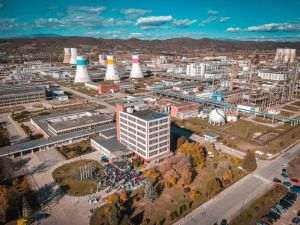The vast and mysterious universe seems eternal to human perception. However, a new theoretical study recently published proposes a shorter timeline: just 10 billion years until the current expansion stops, and the universe will begin to contract. This possibility brings back into focus the two major scenarios for the end of the cosmos: the Big Freeze and the Big Collapse, reports LiveScience.
According to the "Big Freeze” theory, the universe will slowly thin out, stars will burn to extinction, and all matter will be isolated, surrounded by a temperature of -273.15°C. On the other hand, the "Big Crunch” suggests that expansion will stop, and matter and energy will begin to collapse towards a single point - a process in reverse to the Big Bang.
• The Cosmological Crisis and the Unknown Called "Dark Energy”
The current cosmological debate is fueled by an enigmatic phenomenon: dark energy, the invisible force believed to be accelerating the expansion of the Universe. However, the exact value of the cosmological constant, an essential element in the equations of the evolution of the Universe, remains unknown. To try to resolve this uncertainty, scientists analyzed data from the Dark Energy Survey (DES) and Dark Energy Spectroscopic Instrument (DESI) projects. The conclusion: dark energy could be made up of axions, hypothetical ultra-light particles that would give the cosmological constant a negative value. And that would tip the scales in favor of a "Big Crunch”.
• Computer Simulations: The Time of the Universe is Shorter Than We Thought
The study, published on the arXiv platform, proposes a computer model in which the Universe has a total lifespan of about 33 billion years. If this hypothesis is confirmed, it means that we are already one third of the way through the entire existence of the cosmos.
Specifically, the model indicates that the expansion will stop in about 10 billion years, followed by the Universe entering a phase of rapid contraction, with a dramatic end in the "Big Collapse”. This is a much faster perspective than in previous models, which estimated the end in hundreds of billions of years.
• A hypothesis, not a certainty
The authors of the study emphasize, however, that the model is purely theoretical, being built on a series of assumptions about the nature of dark energy, which has not yet been identified experimentally. At the same time, this is not the first time that such a hypothesis has appeared. In 2022, another study suggested that the expansion could stop in as little as 100 million years, an insignificant term on a cosmic scale. In contrast, Big Freeze theorists estimate that this scenario will occur in 1.5 trillion years at the earliest-that is, 1 followed by 78 zeros.
In addition to these two major theories, there are other speculative visions. Some research suggests that the Universe could operate in endless cycles of Big Bangs and Big Crunches, thus becoming immortal. Other bold hypotheses claim that we live in a cosmic simulation or hologram, where the laws of physics are just rules imposed by an unknown "programmer.”
• The only certainty: we don't have the answer (yet)
Beyond these theories and simulations, the scientific community remains united in recognizing the current limits of knowledge. The identity of dark energy, the nature of time and space, or the ultimate meaning of the Universe are questions to which we still don't have clear answers. But one thing is certain: research continues, and each new study, even theoretical, brings us closer - even if only by a small step - to understanding the cosmic future of our species and the Universe itself.














































